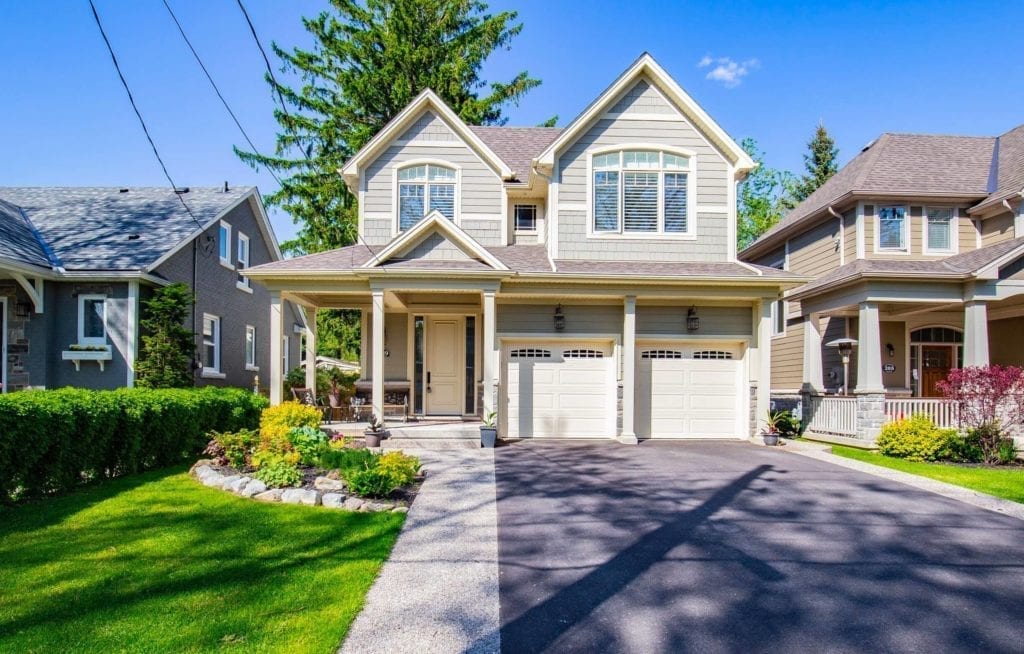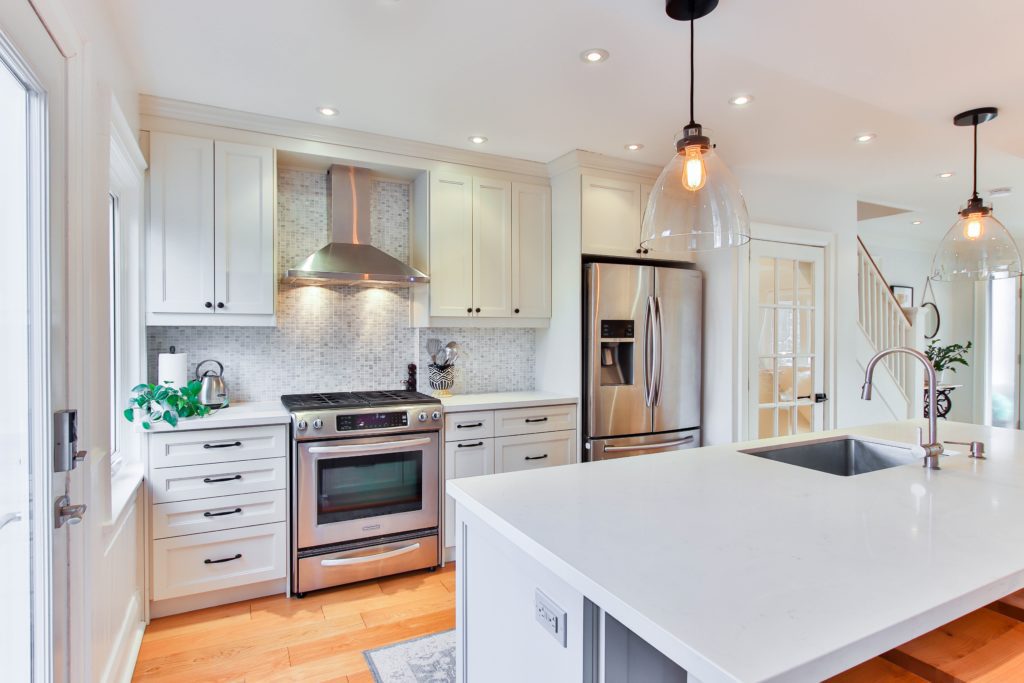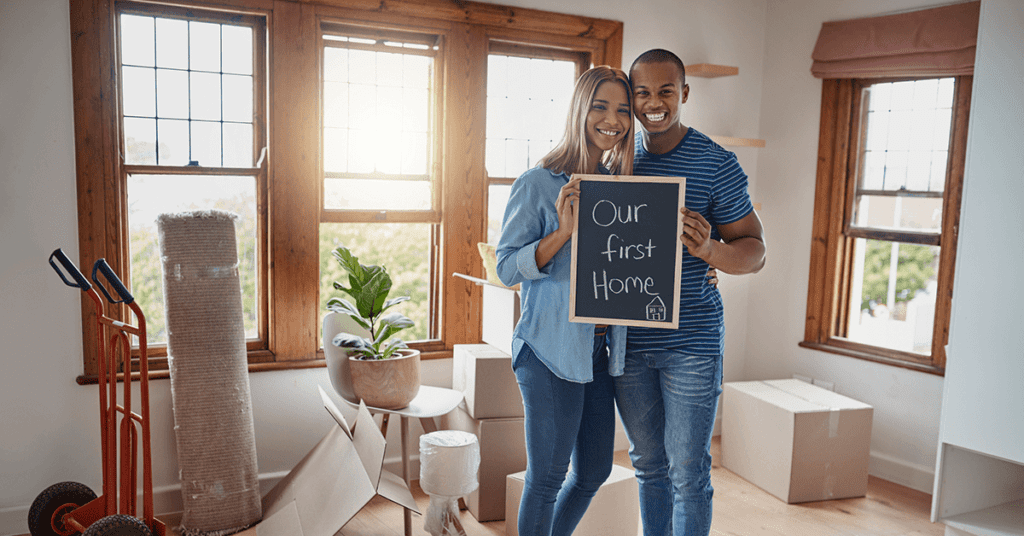For decades, financial and real estate experts have loudly proclaimed that there is “no better time for first-time buyers to get into the market.” High housing prices make it challenging to follow that advice in the current landscape.
However, the benefits of buying a house are as important, if not more important, than ever. With a place of your own, you no longer have to worry about rent going up or the landlord deciding to sell the home. Plus, each monthly payment builds your equity and brings you closer to the day when you will be mortgage-free.
The question now is, how can you get started? In this post, we’ll take you by the hand and walk you through all of the steps to buying your first home.
Choose Expert Representation
There are a lot of myths floating around about the pros and cons of working with a real estate agent. Sellers often believe that they can save money by doing all of the work themselves. This is usually not the case. More often that not, a seller will struggle to keep up with all of the demands on their time and end up with less than they would have if they used an agent.
However, it makes no sense to go it alone when buying. Friends and family may love to provide their expertise. The seller usually pays all real estate commissions, which means you get all of the benefits of working with a Realtor® with no out-of-pocket expenses.
You may have a list of about a million questions about buying a home or whether it’s even a good idea for you right now. It’s important to have an expert you trust to guide you and represent your best interests at every stage of the process. How can you choose an agent to represent you when you’ve never dealt with the real estate market before?
The following tips will help you get a head start on your research:
- There’s more information available online than ever before. Browsing the websites of local real estate teams and checking their Google reviews is a great way to get the lay of the land.
- Find out how long the real estate team has served your area. Ideally, you want someone who knows how to navigate the market even when it’s not in your favour.
- Make a list of potential real estate agents who seem like a good fit. The next step is to email them with a few of your questions. How they respond—and how quickly—can indicate the type of service they will provide.
Do you need more resources before starting the search for your first home? Here is some related reading you may enjoy:
- Hidden Costs of Buying a Home You Need to Know Now
- How To Win In A Multiple Offer Scenario
- 7 Amazing Benefits of Working with a Real Estate Agent
Beginning the Process
Once you’ve found an expert you trust to represent you, you can take your first tentative steps towards home ownership. What might that process look like?
If you’re just getting your feet wet, you can start with a mortgage pre-qualification. This is a simple step that you can complete in just a few minutes from your laptop or smartphone. You’ll answer a few questions about your income, assets and debts.
Within minutes, you’ll get an estimate of what the major financial institutions might lend you. It’s not an amount you can take to the bank, but it’s a good start!
When you know for certain that you’re ready to buy your first home, ask your real estate agent to recommend a mortgage broker. You can get a pre-approval, which is a far more accurate estimate of how much you will be able to borrow, presuming nothing changes between now and your closing date.
In the meantime, it’s best to avoid applying for new credit cards or taking out other loans if you can help it. Another benefit of getting pre-approved is you can lock in the lowest interest rate for 90 to 120 days.
Do you want more information on how to finance your purchase? You may enjoy enjoy “Pre-Qualification Vs Pre-Approval – Which Is Better?“
Create Your Wish List
This might be the most exciting part of preparing to buy your first home. You get to dream about what your new house will look like and what attractions might be in your new neighbourhood.
Creating a list of needs and wants will help you move from the planning stages to actually packing your bags and moving into your new home. Start by dreaming big, then outline what compromises you are willing to make. A starter list might look like the following:
- What structure are you looking for? A convenient condo with no maintenance or detached home with a backyard?
- Where should your new home be located? What city and what neighbourhood?
- Do you want a newly constructed home or something in a more established area?
- How many bathrooms and bedrooms do you want?
Understanding Down Payments
With the average price of housing up dramatically over the last few years, buying a house requires some financial resources. You may have heard repeatedly that you must have at least 20% upfront before you can even think about breaking into the market. However, this is one more misconception that prevents many would-be buyers from moving forward. Here’s a more detailed look at what you actually need to secure your first home.
- For all properties $500,000 and under, you will need a 5% down payment ($25,000).
- You will need 10% on any amount between $500,000 to $1 million. The down payment for a $700,000 house breaks down like this: $25,000 for the first $500,000, then 10% on the remaining $200,000 ($20,000) for a total of $45,000.
- A $1 million home may seem ambitious for a first-time buyer, but it does happen. You would need to come up with a minimum of $75,000 to make this a possibility. That is $25,000 for the first $500,000 plus 10% on the remaining half, which works out to $50,000.
- Now imagine the down payment you would need if you jumped right into a luxury home priced at $2 million. The breakdown is the usual 5% on the first $500,000, then 10% on the next $500,000. Any amount over $1 million is where you will need 20%. In this case, it works out to $25,000 + $50,000 + $100,000, for a total of $175,000 upfront.
There may be another reason for the myth that you can’t buy a house with less than 20% down. Most housing loans will be subjected to mortgage insurance, one of the most significant closing costs. However, there is a way to avoid it–by putting a 20% down payment.
What Closing Costs to Expect
Speaking of closing costs, let’s talk about some of the other expenses associated with your home above and beyond the purchase price. To be safe, it’s a good idea to set aside anywhere from 3 to 4% to ensure a comfortable transition. Many of these costs can be included in your mortgage.
- Legal fees to ensure the title is free of any liens that could interfere with your purchase.
- Title insurance to protect against identity theft or real estate fraud.
- Utility hook-up fees and any home maintenance costs.
- Property insurance, home inspections and appraisal fees.
- Land transfer taxes, which cannot be included in your mortgage.
- And, of course, mortgage insurance on any purchase with a down payment of less than 20%. You can pay this in one lump sum or as part of your monthly mortgage.
What goes on behind the scenes in a real estate transaction? The following resources will help make you an educated buyer:
- What Real Estate Lawyers Do
- The Deal Fell Through. What Happens Now?
- How To Negotiate A Real Estate Contract
Government Resources for First-Time Buyers
Calculating how much you’ll need to buy your first home can seem mind-boggling. If the numbers add up but leave you feeling a little bit crunched, there is good news. The provincial and federal governments offer incentives to ease your financial burden and help you get your first foothold on the property ladder.
- Home Buyer’s Plan: You can withdraw up to $35,000 from any tax-sheltered investment without penalty as long as you repay those funds within 15 years.
- First Home Savings Account: This relatively new program allows young Canadians to start saving for their first home payment as they turn 18. Each year, you can put up to $8,000 into a tax-free investment up to a maximum of $40,000. Unlike the Home Buyer’s Plan, there is no need to repay these funds. Best of all, your investment can grow, which substantially increases your purchasing power as time goes by.
- Land Transfer Tax Rebate: Land transfer taxes are one of the most significant closing costs when purchasing a home. Fortunately, first-time buyers qualify for an instant rebate of up to $4,000.
- First-Time Buyer Tax Credit: First-time buyers can qualify for a tax credit of up to $1,500, which can help cover incidental costs when moving into a new home.
Do you have more questions about the process of buying your first home? Reach out today or call 905-332-9223 to connect with our office.





